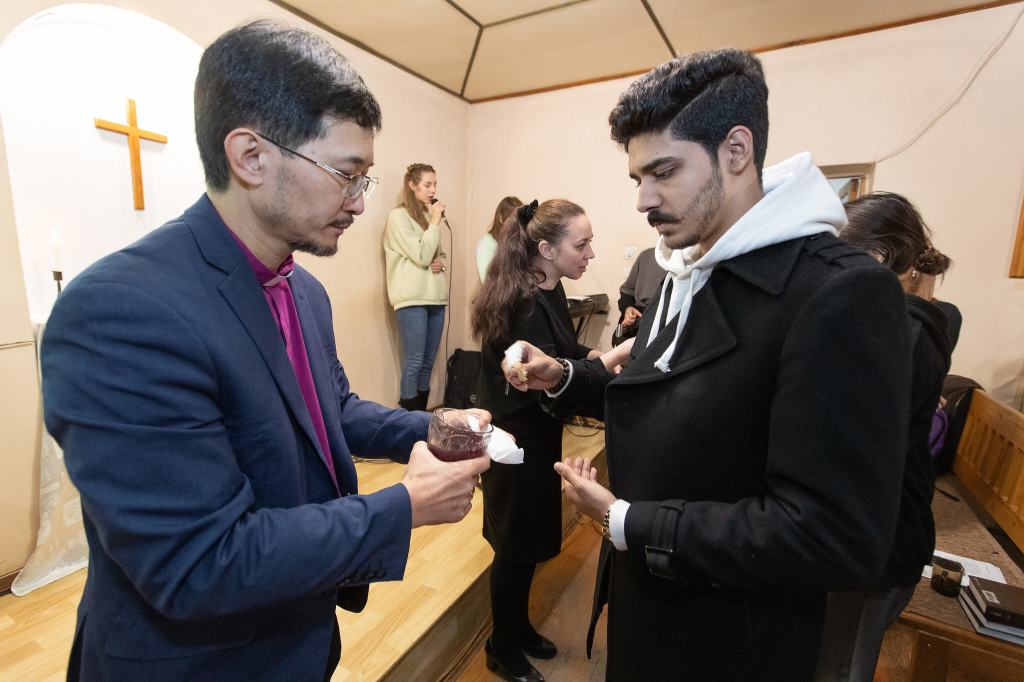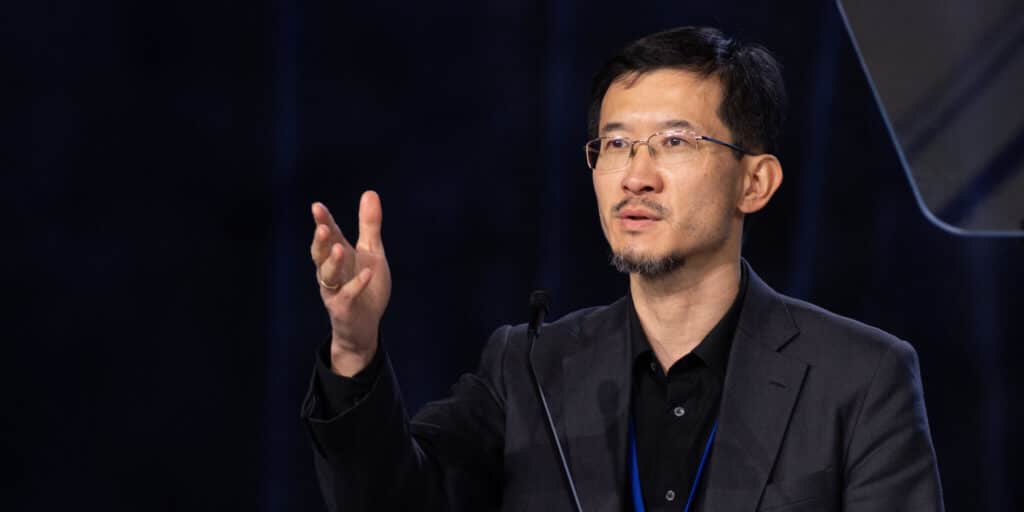ATLANTA – On April 25, 2024, delegates at the United Methodist General Conference in Charlotte, North Carolina, voted to approve the transition of the Eurasia Episcopal Area from a United Methodist Church to become an autonomous affiliated Methodist Church on its own. The four annual conferences of Eurasia, Central Russia, Eastern Russia, Northwest Russia and Belarus Provisional, and Southern Russian Provisional requested and approved this transition in their respective annual meetings and brought it to the Standing Committee on Central Conference Matters+ for approval and recommendation to General Conference.
Unlike U.S. congregational disaffiliations, which used a time-limited paragraph 2553 inserted into the Book of Discipline by the 2019 Special General Conference, Eurasia chose to exit using the long-standing autonomy section of the Book of Discipline, paragraph 572. For this reason, the move is not a disaffiliation. Bishop Harald Rückert of Germany, chair of the Standing Committee, described the process as “recognizing that the history in Eurasia and in Europe has developed in different directions, and we can extend grace to each other and let go, even though our hearts are in pain, because we feel that we are still sisters and brothers, but we will take different routes when we go into the future.”
Bishop Eduard Khegay, of the Eurasia Episcopal Area, expressed his thanks to General Conference delegates after the resounding majority with which the action passed on the floor, 672 for and 67 against. “Bolshoe spasibo!” he said. “This is how we say thank you in Russia.”
Journey of a mission initiative
Bishop Khegay also thanked the General Board of Global Ministries for its investments of time, personnel and partnership coordination to plant churches and build relationships and facilities in what was then the Russian Mission Initiative. “GBGM has sent long-term missionaries, short-term mission teams, and millions of dollars so that we in Eurasia can be encouraged and inspired to be in mission among our people in post-Soviet countries.” He also thanked the United Methodist Committee on Relief for its role in helping through times of disaster.

Before World War II, Methodism was established in Russia, as early as 1888, in St. Petersburg. The recognition of those early Methodists by the Russian government in 1909, documented in government records, benefitted the new church as it reemerged and grew in Russia after the 1989 decline of the Soviet Union. A series of visits beginning in 1991 by Global Ministries’ leaders identified areas that held on to Methodist practice even though their churches had been closed and confiscated and the pastors arrested and imprisoned.
In consultation with the remaining faith communities and other Protestant entities as well as the Russian Orthodox Church, missionaries were sent to start work in strategic places. The Russia Mission Initiative also opened the door to church partnerships in the U.S. and Europe, matching individual congregations with newly established faith communities in Russia and making a way for volunteer mission teams to visit and deepen partner relationships. A number of these partnerships and missionaries were recognized by Khegay.
“I became a Christian because the UMC in Los Angeles sent a young man named J. Park to do mission work in Russia in 1992,” Khegay confirmed. Today, J.* and his wife C.* have reentered missionary service as Global Ministries missionaries in Southeast Asia.* “I was baptized in Moscow Central UMC by a Global Ministries’ missionary, Y. C. Cho,* in 1992. These people and members of The United Methodist Church in Moscow showed me the way of Christ, the way of love and encouragement, forgiveness and practical holiness.”
Because of the historical congregations, the UMC was able to register as a centralized religious organization in 1995 and again in 1999, when Russian law changed, with the right to use Russia in its name and conduct public activities in all parts of the Russian Federation. Those rights will continue as the church transitions to an autonomous Methodist Church.
The door remains open
Bishop Khegay mentioned a number of challenges and hardships faced by the Eurasian church in his 12 years of episcopal ministry, such as the East-West divide, geopolitical manipulations by superpowers, economic ups and downs, and theological controversies. The geopolitical realities in Russia at present make it difficult to be part of organizations perceived to be connected to the Western World.

According to the Discipline, Eurasia will remain in the United Methodist connection until the Eurasian Central Conference meets in 2025 and a final vote for autonomy is ratified, at which point it will transition to its new status and will be free to create its own structure and guidelines.
Bishop Rückert emphasized that conversations between the Standing Committee members and Eurasian representatives took place in an amicable way with a sense of mutual respect. He also indicated that no barriers to continuing relationships should be perceived and that if circumstances change, the church is free to consider another course of action. “There are no closed doors for future development between us,” he said. “All doors are open in the future.”
+The Standing Committee on Central Conference Matters is a permanent General Conference Committee that convenes several times in a quadrennium to coordinate matters that come before General Conference from the central conferences. [BOD, Section XVI. ¶ 2201.] On matters of affiliation and autonomy, the Standing Committee reports directly to the General Conference.
*J. and C. Park serve in a sensitive area with a Global Ministries mission initiative in Southeast Asia. For this reason, their full names and exact country assignment have been withheld. Y.C. Cho and his wife, S. Cho, continue to serve as missionaries in another part of Eurasia.
Christie R. House is a consultant writer and editor with Global Ministries and UMCOR.

